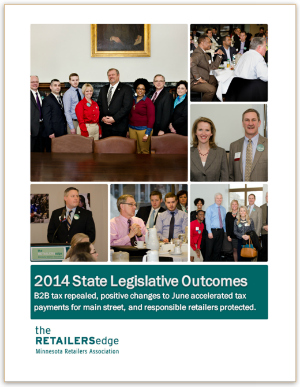The key to gaining a market share of the millennials is not much different than the generations before them.

I recently attended a seminar entitled “Working Across Generations” in which the facilitator challenged attendees to work in small groups and develop strategies for how to bridge generational divides in the workplace. Our discussion started with the stereotypes associated with each generation.
Greatest Generation: Strong work ethic with patriotic undertones.
Baby Boomers: hard workers with rebellious streaks.
Generation Xers: Rebel consumers with minimal time for work.
Millennials: Tech-obsessed, self-centered, but driven to succeed.
This discussion got me thinking about how brick-and-mortar businesses might reach this new generation of millennials, many of whom are experiencing disposable income for the first time. This disposable income, I will note, is relatively scarce due to the soaring cost of higher education. This presents a challenge for retailers hoping to earn the trust necessary for new consumers to spend their precious dollars on a particular brand.
What’s the secret? Well, the key to gaining a market share of the millennials is not much different than the generations before them. It’s communication. Below are a few practical tips.
- Believe it or not, there is such thing as social media overload. Yes, millennials are more virtually connected than any generation that has come before. This might lead a retailer to believe that the more social media tools they utilize the better. Wrong. Choose a social media channel that makes sense for your business. Millennial consumers are savvy; they won’t spend any time at all on your social media sites if they don’t make sense or are clunky to navigate. Make a commitment to a social media channel that makes sense for your business and stick with it before hopping on another channel. You, like consumers, have a limited amount of time to spend generating content and keeping your content relevant. Go easy on yourself and don’t spread your business too thin on social media.
- Don’t confuse consumers with your social media “savvy.” So you just read Tip #1, and you think you’ve overcome this problem by linking all of your social media accounts to efficiently update and maintain your presence. Unfortunately, this isn’t the smartest move. Every social media channel has unique qualities that attract a specific consumer set. It is critical, particularly for millennials that you interact with your consumers in the style used by each site. For example, Twitter followers expect short, real-time updates from retailers so sending them a longer, visual post that aligns more with Facebook could alienate or confuse your Twitter customers. Unlink your accounts. You don’t have to like it. Just do it.
- Thank us. Thank us. Thank us. A millennial walks into your store (no, this is not the beginning of a bad joke), you interact with them, they purchase something, they exit the store. What now? (Don’t worry, it’s not a trick question.) Millennials are
 just like any other life generation, they like to be thanked. Nothing beats the power of a good, old-fashioned thank you. Even millennials love a postcard in the mail. A shout-out on Twitter, while slightly less personable, can also be effective.
just like any other life generation, they like to be thanked. Nothing beats the power of a good, old-fashioned thank you. Even millennials love a postcard in the mail. A shout-out on Twitter, while slightly less personable, can also be effective.
For these and other fantastic tips for communicating with customers from all generations, check out “The Ann E. Answers Guide to Communications Etiquette in the Digital Age.” The book was written by my company and can be purchased at anneanswers.com. All book proceeds go to Dress for Success, a local nonprofit dedicated to promoting the economic independence of disadvantaged women in the Twin Cities.
Written by Elizabeth Emerson
on Thursday, 12 June 2014.
Posted in Trends, Sales & Marketing, Retail Operations
The 2014 legislative session was about more than just minimum wage.

The 2014 legislative session was about more than just minimum wage. Curious what passed that will impact your retail operation? The Minnesota Retailers Association has released it's session outcomes report., highlighting nearly three dozen issues that passed or failed.
Here is a quick preview from the report introduction by Board Chair Mike Hiltner and Legislative Policy Committee Chair Jeff Lindoo:
Under a challenging legislative environment, MnRA is pleased to announce:
- The repeal of business-to-business taxes enacted last year, including the concerning storage and warehouse tax that was set to take effect April 1;
- Positive main street retailer changes to the threshold and percentage of June accelerated tax payments;
- Passage of industry-supported changes to Minnesota's Pharmacy Practices Act;
- Protection for responsible retailers operating mobile device trade-in programs;
- A year delay in the introduction of a dime deposit-refund beverage container recycling program bill;
- Successful opposition to a 48-hour consumer notification mandate when a data breach occurs;
- Removal of a duplicative tobacco excise tax originally passed in 2013;
- Defeat of a proposal that would have required retailers to pay an hour of "sick and safe" leave for every 30 hours an employee worked.
To received a copy of the 2014 State Legislative Outcomes report, follow the appropriate link below.



Written by Bruce Nustad
on Monday, 02 June 2014.
Posted in Retail Operations, Policy & Politics
Bipartisan effort would allow for a three-year delay in implementation of "belly button" tax
Minnesota Senator Al Franken, in bipartisan action with Illinois Senator Mark Kirk, on April 11 introduced legislation (S. 2253) for a three-year delay in implementation of an employer-paid $63 per-person tax provided for under federal healthcare reform. The tax funds a temporary "reinsurance" program that not all businesses are eligible to participate in, creating a situation where some retailers pay in to the program but receive no benefit.
In introducing his Health Care Fairness and Stability Act of 2014, Senator Franken said, "My number one concern is to make sure the Affordable Care Act works for the people of Minnesota. We need to keep moving forward and fix the things that aren't working. Businesses and workers all over Minnesota are concerned about this. Our bipartisan bill would provide relief to employers and workers, and it helps keep costs down for businesses across the country."
"At a time when retailers are digesting the impact of federal healthcare reform on their operations, we appreciate Senator Franken's leadership on an effort to delay the collection of the transitional reinsurance tax. We are hopeful that the Senator's effort will allow the time needed to find a better, fairer funding mechanism for this program," commented Minnesota Retailers Association president Bruce Nustad.
Retailers and employers of all size are negatively impacted by this tax, sometimes referred to as the "belly button" tax because it is assessed for each employee, spouse, dependent and retiree covered by a fully-insured or employer-sponsored, self-insured group health plan. In addition to delaying implementation of the tax, the Health Care Fairness and Stability Act of 2014 proposes to reduce the amount collected for the program by aligning the tax with the actual financial need of the program. Also, in the U.S. House, bipartisan legislation (H.R. 3489) was introduced last November to repeal the fee.
The Minnesota Retailers Association thanks Senator Franken and co-sponsor Senator Amy Klobuchar, as well as the International Franchise Association, National Retail Federation, and Retail Industry Leaders Association for leadership on this issue.
Written by Bruce Nustad
on Friday, 09 May 2014.
Posted in Retail Operations, Policy & Politics
 just like any other life generation, they like to be thanked. Nothing beats the power of a good, old-fashioned thank you. Even millennials love a postcard in the mail. A shout-out on Twitter, while slightly less personable, can also be effective.
just like any other life generation, they like to be thanked. Nothing beats the power of a good, old-fashioned thank you. Even millennials love a postcard in the mail. A shout-out on Twitter, while slightly less personable, can also be effective.



